PROMOTING FOOD SECURITY AND POVERTY REDUCTION IN IRFA COTE D’IVOIRE
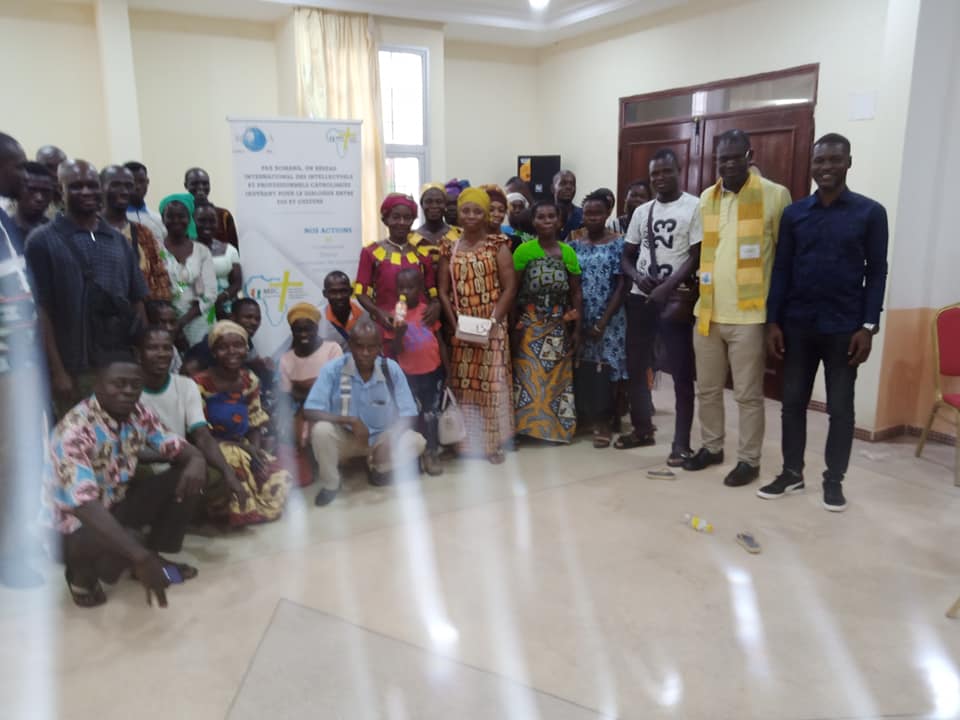
Hunger remains a major daily problem for around 795 million people worldwide, of whom 780 million live in developing regions (FAO, 2015). Sub-Saharan Africa is the region with the highest prevalence of undernourishment. The state of Côte d’Ivoire encourages producers to develop the “Bas-fond” in order to exploit them for food crops and in particular in market gardening. In order to achieve the Sustainable Development Goals (SDGs) and to explore the appropriate strategies to fight against poverty, PAX ROMANA launched a project entitled “Promoting food security and poverty reduction through integrated approaches in the face of covid 19 “. This project aimed to tackle the challenges of nutrition and food insecurity in IRFA Azaguié Cote d’Ivoire by strengthening community capacities, improving productivity, diversifying food sources and improving the income of targeted communities.
Profile of Project’s beneficiaries
Majority of the beneficiaries being inhabitants in IRFA are not landowners. Many have primary, secondary level of education while some of them did not receive any formal education at all. Majority of them are Christians from the Roman Catholic Church, Assembly of God, and Protestants.
COVID 19 and its impact on agricultural practices
Pax Romana conducted an survey with the farmers about the Covid 19 pandemic ad its impact with their daily livelihood (in 2020). All interviewees are aware of the existence of the COVID 19 pandemic. They learnt about it through the radio, TV and other displays. Participants confirmed that the pandemic has had negative effects on their sales and their agricultural production.
Needs of the beneficiaries
Many of the beneficiaries rent plots around the village for farming. Many of them practice vegetable gardening, cash crop farming without any prior training on agricultural farming at all.
Majority of the participants know some potential buyers but they do not have any formal agreement with them yet. Farmers pointed out that they lack of market for their produce, they lack a proper training on good agricultural practices. They wish to get accompaniments and technical support.
OUR INTERVENTIONS
SHORT TERM SOLUTION TO LAND ISSUES
With regards to land issue, the village chief invited those who have land to cede a plot to their brothers and sisters who do not have for the success of the project. Immediately afterwards, commitments were made by some landowners to help those who do not have land.



To help those who do not have land, Pax Romana helped the beneficiaries to form their own cooperative. It is called “Pax Romana fraternity”. Through the cooperative, the group have managed to put bananas, cassava and started some nurseries in around 2ha of land and put in place a committee that will lead the cooperative. Pax Romana will do the monitoring of the running of the association.
The training was done in two phases: theory and practical. They were done that way with the purpose to strengthen the capacities of beneficiaries on the management of their farms, their environment, to teach them on good agricultural practices (promotion of organic farming) and on compost production techniques.
THEORIES
- Training on Environmental Management, Food Hygiene and Health and Integrated Covid19 risk management
The trainer dwelled on the importance of food hygiene, good environmental management methods. He also instructed the beneficiaries on food quality assessment in relation to the health of the consumers and provided health and personal advice. Beneficiaries showed their active participation through testimonies and contributions.

- Training on Good agricultural practices and organic manure production
During this training, participants learned about good agricultural practices, methods of making compost and the benefits from making composts. They were also shown the correct methods of applying pesticides (herbicides, fungicides, nematicides, insecticides, bactericides, fertilizers, etc.). Farmers were trained on integrated management methods for biotic and abiotic constraints by presenting the symptoms of several diseases of vegetable crops.
At the end of the training, beneficiaries contributed a lot through testimonials and questions. Most participants realized and confessed that they have been using less certified seeds. The main challenge appeared to be the lack of mastery of the calibration of sprayers, proper use and the dosage of fertilizer, and the lack of knowledge on plant diseases in vegetable crops.
Training on cooperative management
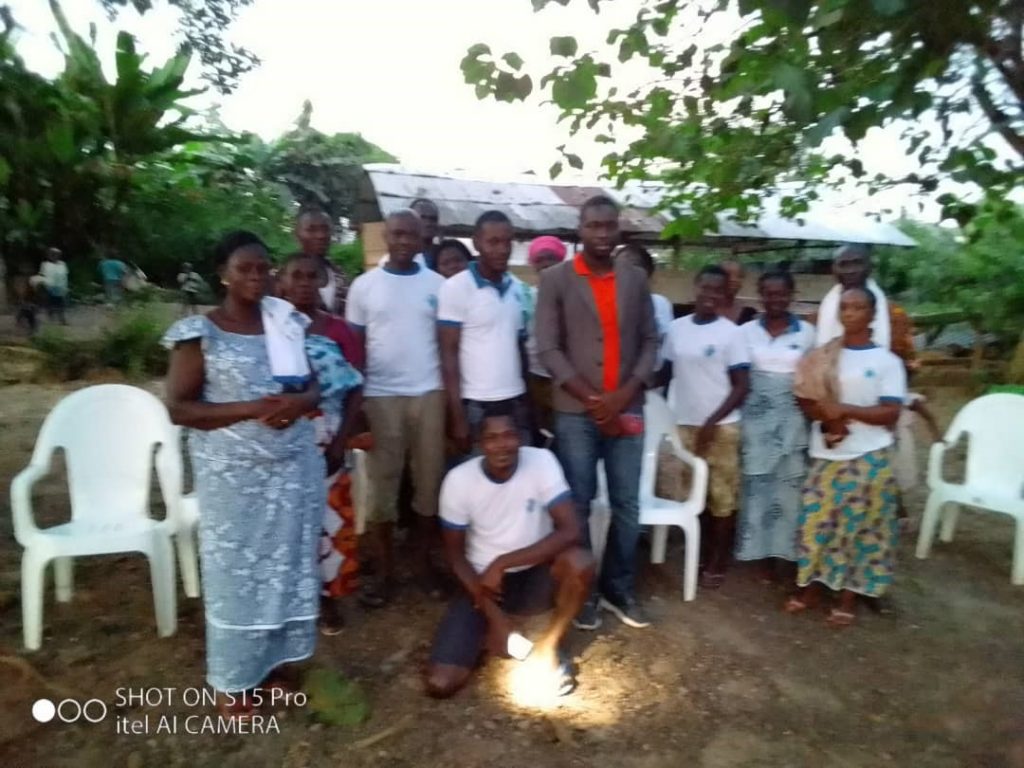
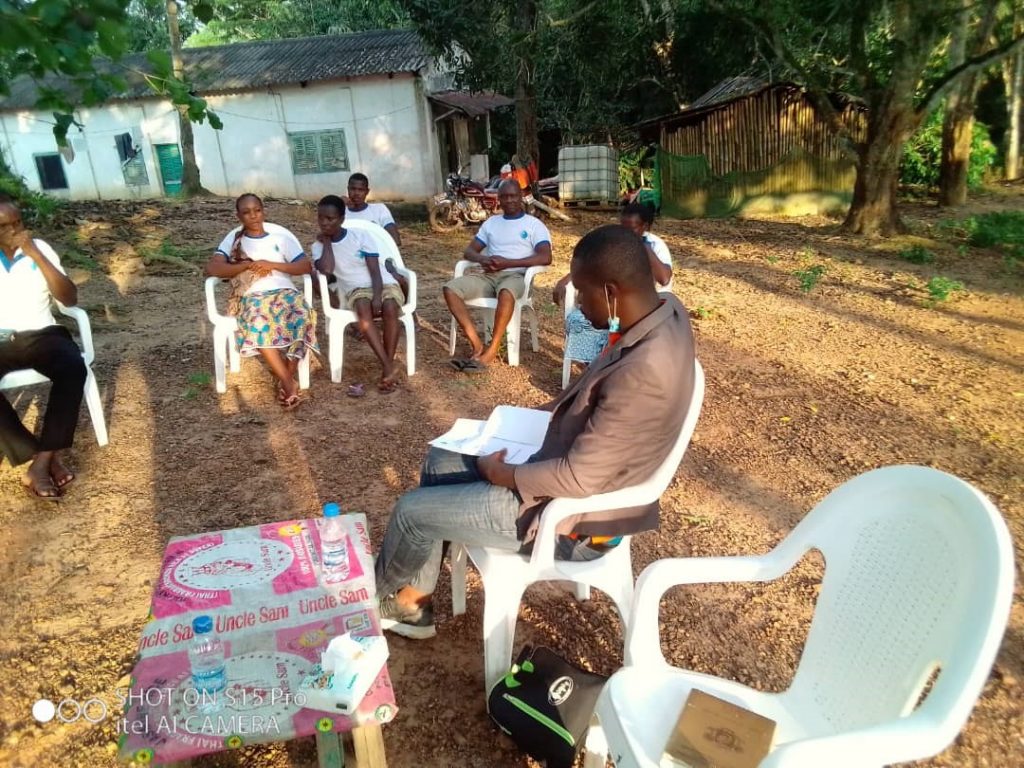
ON THE FIELD TRAINING
- Farming techniques for some crops
A 0.5 ha demonstration plot was used for teaching (composting and nursery). The crops are banana, cassava, pepper and eggplant. A technician was affiliated to each group with each crop.


- Composting techniques
In order to recover plant residues from agriculture and animal waste, training on composting techniques was initiated at IRFA. The trainer shared with the participants some of the techniques of composting production:
- The choice of the site for the Andean compost house.
- Shape and dimensions.
- The main materials for making the compost.


- Technical itineraries
The objective of this training was to train participants on the technical itineraries of market gardening(choice of soils, nursery preparation, weed control, calibration of sprayers and fertilizers) and the good agricultural practices.


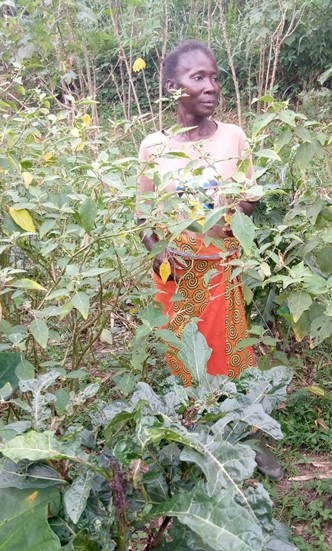
The practice of the cultures of chili, eggplant, banana and cassava also came up during this training. The members of the different groups put into practice what they learned about the technical itineraries of their crops of their choice after the explanations of the technicians.
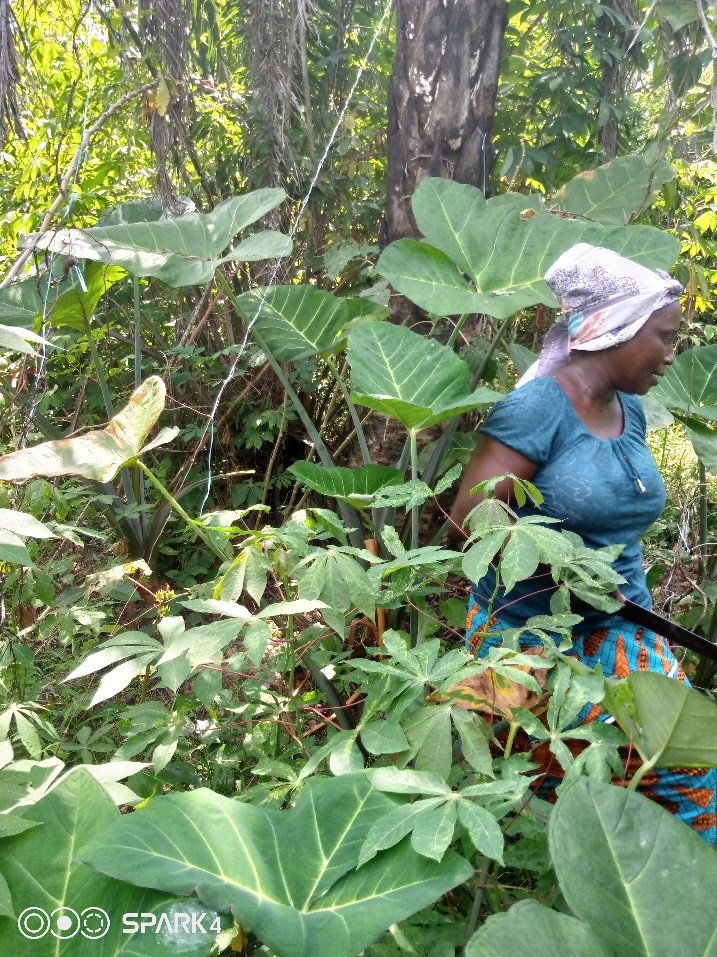
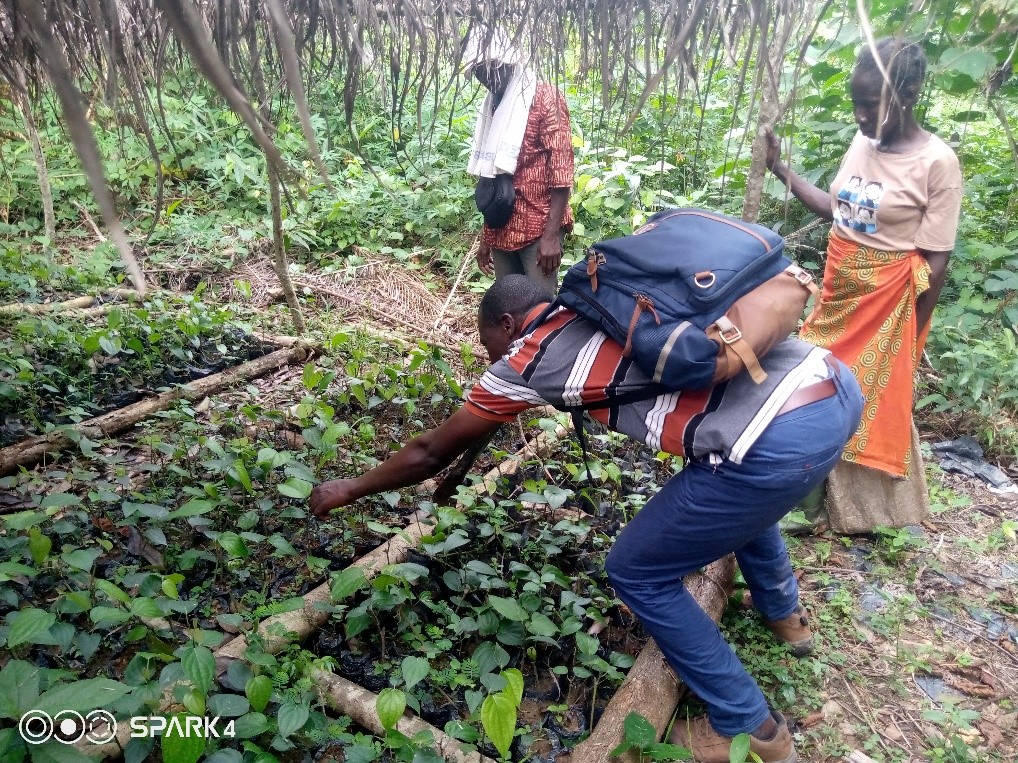
MATERIAL AND SEEDS SUPPORT
With the aim to support the efforts of the beneficiaries of this project, some farming equipment (machete), organic inputs, seeds were provided to them. The donation ceremony was chaired by the country coordinator, Mr. Kangah Léon LOUKOU, in the presence of the village authorities.
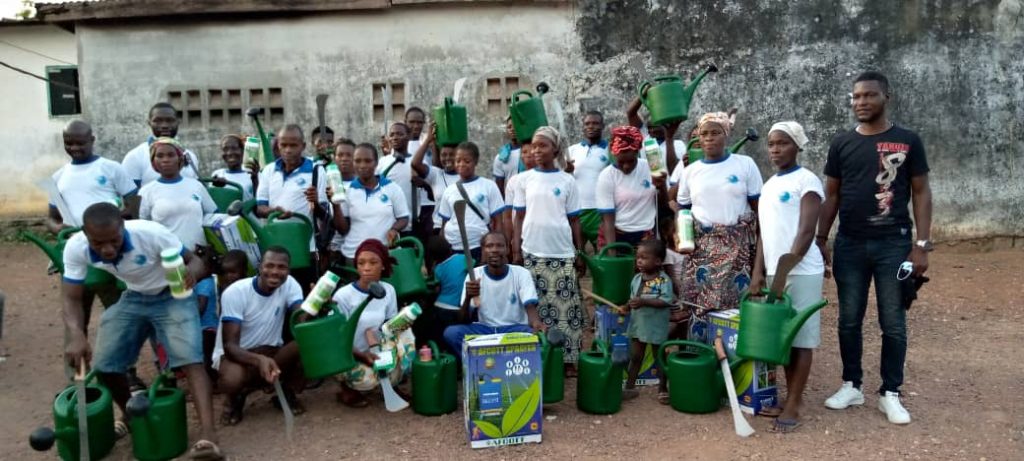
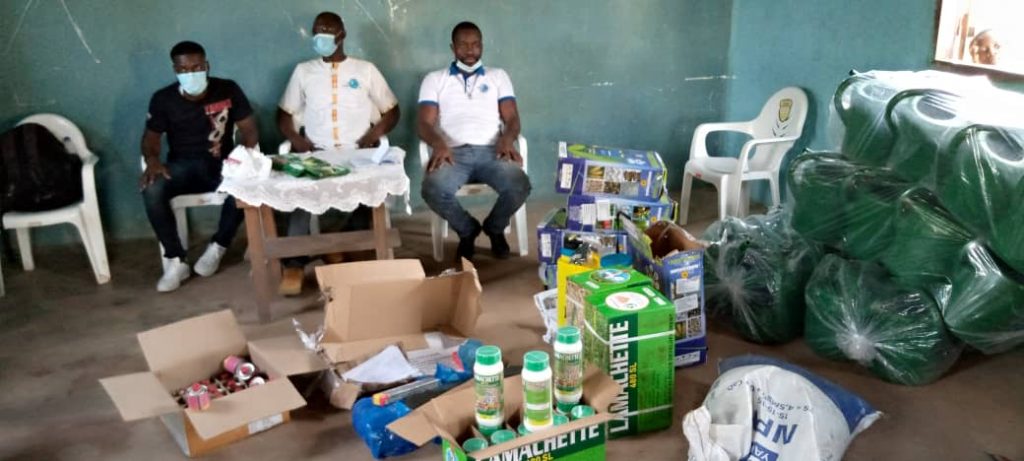
Word of gratitude from the beneficiaries
The spokesperson for the beneficiaries showed their gratitude to PAX ROMANA for having chosen them as beneficiaries of the project. They were also grateful to MIIC Pax Romana Côte d’Ivoire, for the smooth running of the activities and for the quality of the training.
